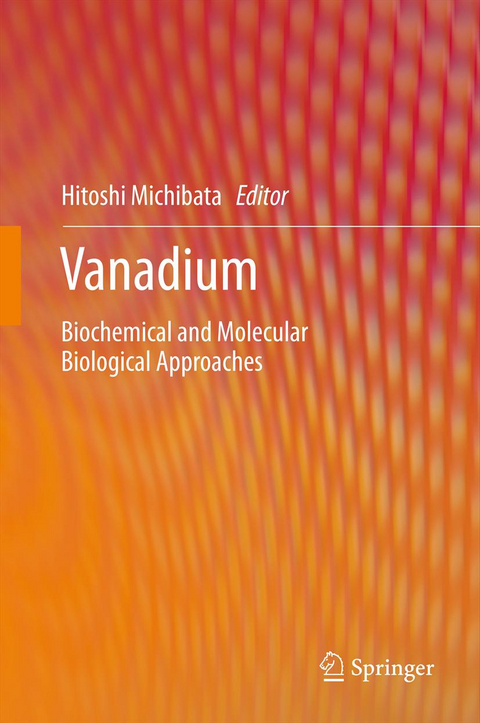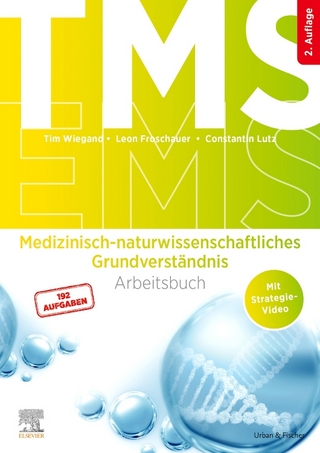
Vanadium
Biochemical and Molecular Biological Approaches
Seiten
2014
|
2012 ed.
Springer (Verlag)
978-94-007-9568-6 (ISBN)
Springer (Verlag)
978-94-007-9568-6 (ISBN)
This volume adds much to our accumulated knowledge of vanadium's central position in a number of enzymes and compounds, presenting inorganic and redox processes and assessing the key role this trace mineral plays in a variety of biological systems.
The publication of Vanadium: Biochemical and Molecular Biological Approaches is particularly timely as it exactly coincides with the centennial anniversary of the discovery of vanadium by Professor Henze, in the blood cells of an ascidian (tunicate) collected in Gulf of Naples in 1911. Vanadium, atomic number 23, covers a wide range of oxidation states (from -2 to +5) and has unpaired electrons. Depending on these properties, a wide variety of enzymes and compounds containing vanadium have been found and the biochemical behaviour of vanadium has been investigated extensively.
This monograph provides not only the basic properties and recent advances of vanadium chemistry but also presents recent topics on hyper-accumulators of vanadium, enzymatic roles of vanadium, biochemical functions of vanadium and medicinal functions of vanadium, which have been discovered by Biochemical and Molecular Biological Approaches.
Vanadium: Biochemical and Molecular Biological Approaches is aimed at pure and applied chemists, biochemists, pharmaceutical and medical scientists.
The publication of Vanadium: Biochemical and Molecular Biological Approaches is particularly timely as it exactly coincides with the centennial anniversary of the discovery of vanadium by Professor Henze, in the blood cells of an ascidian (tunicate) collected in Gulf of Naples in 1911. Vanadium, atomic number 23, covers a wide range of oxidation states (from -2 to +5) and has unpaired electrons. Depending on these properties, a wide variety of enzymes and compounds containing vanadium have been found and the biochemical behaviour of vanadium has been investigated extensively.
This monograph provides not only the basic properties and recent advances of vanadium chemistry but also presents recent topics on hyper-accumulators of vanadium, enzymatic roles of vanadium, biochemical functions of vanadium and medicinal functions of vanadium, which have been discovered by Biochemical and Molecular Biological Approaches.
Vanadium: Biochemical and Molecular Biological Approaches is aimed at pure and applied chemists, biochemists, pharmaceutical and medical scientists.
Prof. Dr. Hitoshi Michibata, Graduate School of Science, Hiroshima University, Kagamiyama 1-3-1, Higashihiroshima 739-8526, Japan
Preface.- Inorganic Chemistry of Vanadium.- Amavadine, a Vanadium Compound in Amanita Fungi.- High Levels of Vanadium in Ascidians.- Hyper-accumulation of Vanadium in Polychaetes.- Structure and Function of Vanadium Haloperoxidases.- Bioinspired Catalytic Bromination Systems for Bromoperoxidase.- Vanadium Effects on Bone Metabolism.- Vanadium in Cancer Prevention.- Cardiovascular Protection with Vanadium Compounds.- Inhalation Toxicity of Vanadium.- Index.
| Erscheint lt. Verlag | 28.11.2014 |
|---|---|
| Zusatzinfo | XV, 228 p. |
| Verlagsort | Dordrecht |
| Sprache | englisch |
| Maße | 155 x 235 mm |
| Themenwelt | Medizin / Pharmazie ► Pharmazie |
| Medizin / Pharmazie ► Studium ► 1. Studienabschnitt (Vorklinik) | |
| Naturwissenschaften ► Biologie ► Biochemie | |
| Naturwissenschaften ► Chemie ► Anorganische Chemie | |
| Naturwissenschaften ► Chemie ► Organische Chemie | |
| Naturwissenschaften ► Chemie ► Physikalische Chemie | |
| ISBN-10 | 94-007-9568-8 / 9400795688 |
| ISBN-13 | 978-94-007-9568-6 / 9789400795686 |
| Zustand | Neuware |
| Informationen gemäß Produktsicherheitsverordnung (GPSR) | |
| Haben Sie eine Frage zum Produkt? |
Mehr entdecken
aus dem Bereich
aus dem Bereich
Das Lernskript für den BMS für Human- und Zahnmediziner
Buch | Softcover (2023)
Urban & Fischer in Elsevier (Verlag)
CHF 76,95
Buch | Softcover (2024)
Urban & Fischer in Elsevier (Verlag)
CHF 22,40


